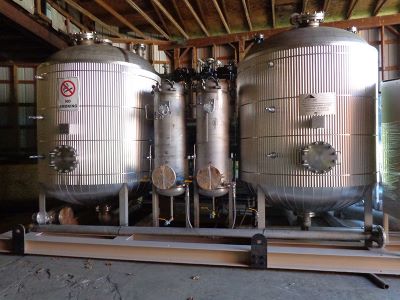
- This event has passed.
Gas Handling, Conditioning and Processing Facilities

Background & About the Course:
The management of natural gas is a critical aspect of oil and gas operations, encompassing handling, conditioning, and processing stages. Gas facilities require in-depth technical knowledge to ensure each process is conducted safely, efficiently, and in compliance with regulations. As technology and equipment grow more complex, and operational efficiency and environmental compliance become increasingly demanding, the workforce must continuously update their skills.
This course is designed to meet these needs by providing foundational to advanced knowledge of natural gas handling. Participants will gain insights into gas properties, equipment usage, and operational techniques. Additionally, the program highlights the importance of workplace safety, energy efficiency, and environmental protection, equipping participants with troubleshooting skills to tackle operational challenges.
Course Objectives:
- Understand the fundamentals of gas handling and recognize the physical and chemical properties of natural gas
- Enhance knowledge of key technologies and equipment used in gas conditioning and processing (e.g., separators, dehydrators, compressors)
- Develop operational skills to improve facility efficiency and safety
- Ensure regulatory compliance regarding gas handling and environmental standards
- Strengthen troubleshooting capabilities to identify and resolve processing issues
Who Should Attend:
- Technical and non-technical staff involved in oil and gas production
- Surface equipment operators
- Pipeline, pump, and compressor technicians
- Gas measurement personnel
- Office and field workers seeking knowledge of gas production processes
Course Content:
- Introduction to Gas Handling, Conditioning, and Processing Facilities
- Gas Properties & Characteristics: Hydrocarbon properties, molecular weight, vapor pressure, critical properties, heat of combustion, etc.
- Equation of State: Ideal gas P-V-T correlation, van der Waals, Redlich-Kwong, compressibility factor, Peng-Robinson models
- Pipeline Gas Specifications: Heating value (HHV/LHV), water, CO2, H2S, mercury content, dew point requirements
- Gas Handling and Conditioning Processes: Separation facilities, conditioning equipment, etc.
- Acid Gas Removal Unit (AGRU): Sour gas, AGRU processes, amine/MDEA operations, regeneration, and recycling
- Gas Dehydration Unit (DHU): Absorption, adsorption, glycol processes (TEG, MEG), regeneration, and recycling
- Low-Temperature Separation (LTS) Facilities: Refrigeration cycles, throttling, phase diagrams, refrigerant selection
- Fractionation/Distillation: Vapor-liquid equilibrium, vapor pressure, plate columns, etc.
- Heat Exchangers: Heat transfer principles, double pipe, shell & tube, plate heat exchangers
- Case Studies, Discussions
ABOUT THE COURSE LEADERS:
Ir. In Jumanda Kasdadi, M.T.
In Jumanda Kasdadi is an instructor who has conducted more than 280 trainings in various industries, especially for oil and gas companies since 1997. He has BS and MS in Chemical Engineering degrees from the Institute Technology Bandung.
Companies that have received Mr. Kasdadi’s in-house training include PHE, PHI, PHR, PHKT, PGN, Chevron, ConocoPhillips, Total Indonesie, CNOOC, Medco, Petrochina, Star Energy, Freeport, Mubadala, Indonesia Power, Geothermal, KAI, US Consulate, Freeport, SKK Migas, Titas (Banglades), and many others.
Ir. In Jumanda K, MT was involved in several projects of Feasibility Study (FS), Front-End Engineering Design (FEED), Detail Engineering Design for Construction (DEDC), Risk-Based Inspection (RBI), HAZID, HAZOPS, QRA, FTA, SIL Classification, etc; for national and international companies. He has also taken courses for 9 topics in The Oil & Gas fields at PETEX (Petroleum Extension), University of Texas at Austin, in Houston, Texas, USA (2018).
